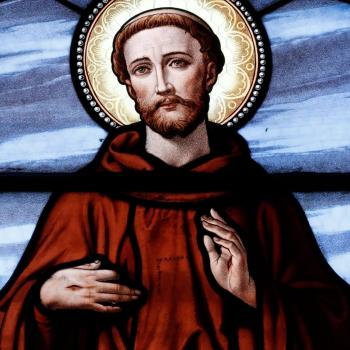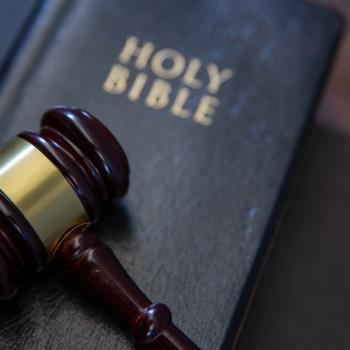Are Christians and “Born Again” Christians the same thing? Well, the straight forward and simple answer to that question is “maybe.” The question is analogous to asking if champagne and wine are the same thing. As any connoisseur knows, all champagnes are wines, but not all wines are champagnes. And so it is with Christians. All born-again Christians are Christians, but not all Christians are born again. Of course, this further depends on how we define our terms. To get a better sense of what it means to be a “Christian,” therefore, we should take a look at the nature of Christian belief. After that we will take a look at what the Bible says about being born again. Finally, we will ask the question about whether or not one can know if another person is born again?
Three Types of Christian Belief
Before we get to what the Bible says about being born again, we should make a few distinctions about the nature of belief. The scholastic theologians were keen to distinguish between different kinds of religious belief. In his indispensable Dictionary of Latin and Greek Theological Terms, Richard Muller highlights three types of belief articulated by early Reformational theologians. They are:
- Credere Deo: to believe God; i.e., to accept as true the revelation or scriptural Word of God. This is not a saving faith but merely fides historica, held by good and bad alike.
- Credere Deum: to believe in (the existence of) God; again not a saving faith, since it implies no loving relationship with God.
- Credere in Deum: to believe in God, in the sense of a close personal love and trust in God and in his mercy; this is fides salvifica, or, in the terms of medieval scholasticism, fides formata.
Muller, 85-86
Of these types of belief, the first and the second types could be ascribed to someone who calls themselves “Christian.” However, these beliefs are not sufficient to be objectively a “born-again” Christian. To be born again implies being saved into a personal and eternal loving relationship with God. Therefore, only the born-again Christian possesses the third kind of belief: Credere in Deum, which is both the necessary and sufficient kind of belief to be truly born again.
Alternatively, Christians who accept the truth of the Bible (Credere Deo) and the heritage of the Christian faith may have a “historical” or “cultural” faith. While belief in the truth of the Bible and Christianity is a necessary condition of saving faith, it is not a sufficient one. Many throughout the centuries have believed the Bible to be “the Word of God” or Christianity to be “true,” but at the same time have never been born again by the Spirit of God and come into a right relationship with their Creator.
Three Components of Saving Faith
While historical or cultural faith was far more prominent in the days of “Christendom,” when the cultural identity was by default “Christian,” one can still find cultural Christians in today’s secularized society. This is one reason why some astute Christians have argued that the rise of the so-called “Nones” in America is not itself a bad thing. The dissipation of a strongly Christian culture allows for cultural Christians to simply go their own way, without feeling pressure to capitulate to a purely cultural mechanism. While there might be disadvantages to not having a Christian culture, it seems that this may actually be one advantage, as people are freed from cultural coercion to pursue, or not pursue, God for themselves. It is hard to say whether a Christian culture is better or worse for the Church, even if it may be better for the society at large.
On the other hand, when it comes to true belief in Christianity, the saving kind of belief, there are three necessary components. One cannot have the kind of faith that makes one “born again” without the following: knowledge (notitia), assent (assensus) and trust (fiducia). Muller clarifies each:
Personal faith is usually explained as having three components, the first two belonging to the intellect and comprising the category of cognitio certa, certain knowledge, the latter one belonging to the will: 1) notitia, knowledge, the actual content of the gospel and the promises of God; 2) assensus, assent, by which the intellect acknowledges the truth of notitia, apart from any personal trust or saving appropriation of that knowledge; 3) fiducia, trust, or … faithful apprehension, which appropriates savingly, by an act of the will, the true knowledge of the promises of God in Christ.
Muller, 115-116
In sum, there can be “Christians” who only have a certain kind of belief, kinds one and two, yet who, in virtue of not having a saving faith based on fiducia, are, objectively considered, not “born-again.” They are Christian in name only. It is these types of “Christians” to whom Jesus will ultimately say “depart from me you lawless ones, I never knew you” (Matt 7:21-23), regardless of whatever Christian “truths” they might have spoken with their mouths or good deeds they believe they have done with their hands.
What Did Jesus Say About Being “Born Again?”
We must now turn directly to the words of Jesus to know more about being “born again.” In John Chapter 3, Jesus meets with one of the religious leaders of the Jewish Sanhedrin, Nicodemus, a man who may or may not be a secret follower of the rabbi from Nazareth. In this memorable exchange, Jesus talks explicitly about the need to be “born again” in order to come into the Kingdom of God (Jn 3:1-23).
Now there was a man of the Pharisees, named Nicodemus, a ruler of the Jews; 2 this man came to Jesus at night and said to Him, “Rabbi, we know that You have come from God as a teacher; for no one can do these signs that You do unless God is with him.”3 Jesus responded and said to him, “Truly, truly, I say to you, unless someone is born again he cannot see the kingdom of God.”
Jn 3:1-3 NASB
Nicodemus, stunned by Jesus suggestion, stands dumbfounded before the Master. For the average Jew in Jesus’ time, the Kingdom of God would have meant the eternal reign of God that was to come at the end of history. For Jesus, however, the Kingdom of God is already at hand in the present (cf. Matt 12:28; Mk 1:15; Lk 9:27), although its consummation is still future. Either way, it is nothing less than this Kingdom that is at stake.
Jesus’ response to this bewildered teacher of the law is that one must be born again not of the flesh, but of the Spirit:
4 Nicodemus said to Him, “How can a person be born when he is old? He cannot enter his mother’s womb a second time and be born, can he?” 5 Jesus answered, “Truly, truly, I say to you, unless someone is born of water and the Spirit, he cannot enter the kingdom of God. 6 That which has been born of the flesh is flesh, and that which has been born of the Spirit is spirit. 7 Do not be amazed that I said to you, ‘You must be born again.’
Jn 3:4-7 NASB
D.A. Carson clarifies what Jesus means by being born again and why it matters:
Here is Jesus telling Nicodemus, a respected and conscientious member not only of Israel but of the Sanhedrin, that he cannot enter the kingdom unless he is born again….The coming of the kingdom at the end can be described as the ‘regeneration’ of the world…but here what is required is the regeneration of the individual before the end of the world and in order to enter the kingdom.
Carson, PNCT Commentary on John, 189 [emphasis in the original]
This is the theological, historic and semantic foundation for what it means to be a born-again Christian. Of course, this raises the question in Nicodemus’ mind, as well as our own, of how one becomes born again?
How To Be “Born Again?”
Nicodemus’ response about climbing back into his mother’s womb may appear obtuse (Carson, 190). However, we might grant Nicodemus some grace, given that he was meeting Jesus for the first time and did not yet have the benefit of experiencing Jesus’ sacrificial death and triumphant resurrection from that death. Most church historians would argue that Nicodemus did go on to become a follower of Christ, i.e., that he was born again. But, how so?
Jesus’ answer is clear as to who the agent of regeneration is: it is the Spirit of God who is poured out onto men and women like water (see Ezekiel 36:25-27), and who purifies them from sin transforming their hearts. This purification and transformation is not initiated by human beings, it is the pure gift of God. It is this grace of God that allows men and women to “follow God wholly” (Carson, 195).
No Christian tradition, Roman Catholic, Protestant or Eastern Orthodox, has ever claimed that man can initiate the process of being born again. With the exception of some early ideas that were discovered to be heretical, the Church has always taught that saving faith is a pure gift from God. However, there have been, and still are, debates about how one appropriates the gift of God’s saving grace. After all, Jesus’s words about being born again are in the imperative: “You must be born again.” And so there have been divides in the Church over whether one chooses to accept God’s saving grace, or whether God’s saving grace simply chooses you.
Nevertheless, if one has genuinely accepted the grace of God poured out by the Spirit of God, then one has become a child of God worthy of entry into and eternal residence in His kingdom. Whoever this person might be, they are a “Born-Again” Christian. It is a status that exists independent of any denominational affiliation, any particular theological tradition or any sociological identity.
Will The True Church Please Stand Up
Both the early Church Father, Aurelius Augustine, as well as the early church Reformer, Ulrich Zwingli, spoke of the visible and the invisible Church. The idea is simple: can we know who is genuinely a born-again Christian as opposed to those who simply play at being Christian. In other words, there is a visible Church on earth that is comprised of both, but an invisible one that is comprised only of the former.
Historically speaking, it is painstakingly difficult to discern between the two. However, it is a reality that Jesus Himself warned us about (Matt 13:24-30) and that we see causing damage in the early church of the Apostles (Jude 3-4; 1 Jn 2:18-19; Gal 1:6-9). Thus, the question emerges, can we know who is a born-again Christian and who is merely a cultural Christian? A few things can be said about whether or not we can know who really is a member of God’s family.
First, only God knows ultimately who is and who is not one of His own (Matt 13:24-30). That certain knowledge is reserved for the omniscient God, not His creatures. In fact, as Jesus points out in the parable of the weeds, anyone who dismisses another thinking they could not possibly be saved is, at least, acting impetuously if not against the very will of God. Second, however, is the fact that Jesus also says we can know His disciples by the fruit (Matt 7:16-20) of their lives, by how they love each other (Jn 13:35), and by their following His commands (Jn 14:15-21; 15:10). This may sound contrary, but it is not contradictory.
In conclusion, therefore, we can say there is a true Church of Jesus Christ. It is made up of all born-again Christians, but not of all who are called Christian. Ultimately only God knows who the born-again Christians are. However, we can discern with some degree of certainty, albeit never total certitude, who is truly born of the Spirit and who is merely playing at Christianity. The way we know this is based upon evidence from their lives, just as we might detect that some wine is indeed champagne.














